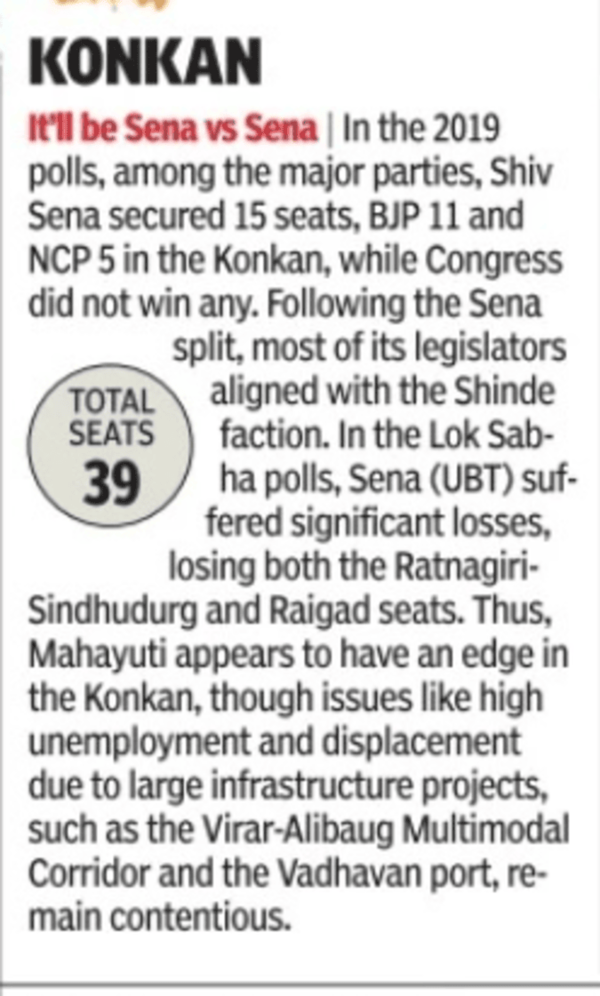It’s the first time in decades that the five-year term of the assembly was split with two rival coalitions running the govt. The first one known as the MVA (comprising Shiv Sena, Congress and NCP) remained in the saddle till June 2022 when a revolt in the Shiv Sena led to Uddhav Thackeray resigning as chief minister. The man who took over, Eknath Shinde, was an MVA minister himself until he broke away and formed the Mahayuti govt, backed by the BJP and later the NCP.
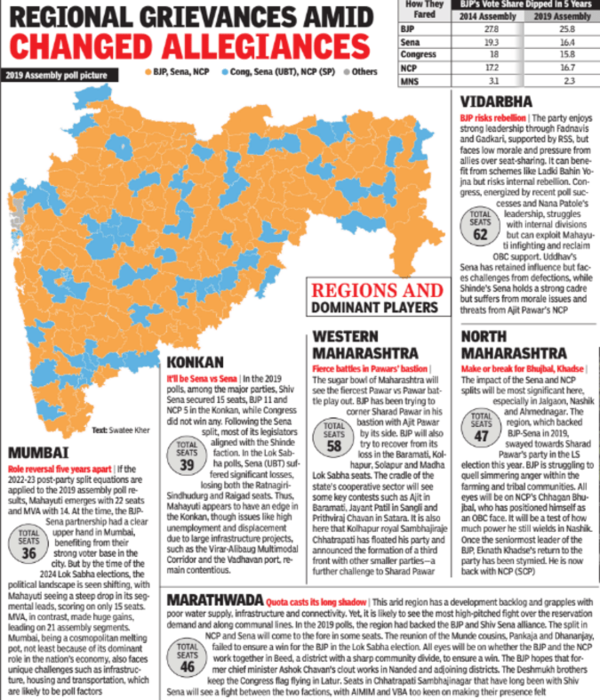
Now as electorate takes stock, it will have to weigh MVA’s record against that of Mahayuti. Issues at stake range from execution of infra projects undertaken in the last five years to welfare schemes in health and education as well as measures taken to promote industry and agriculture. The ongoing quota stir, dissatisfaction over low fair and remunerative prices for sugarcane, export policy on onions, farmer suicides, law and order, and the sympathy wave for Uddhav Thackeray and Sharad Pawar for putative BJP-engineered splits in their parties will also impact voting.
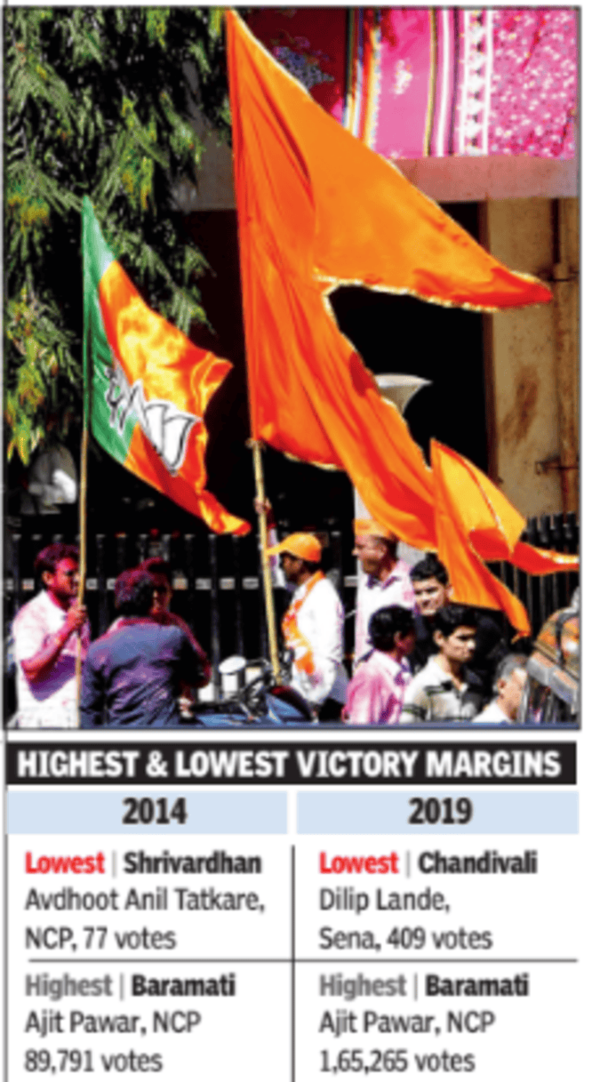
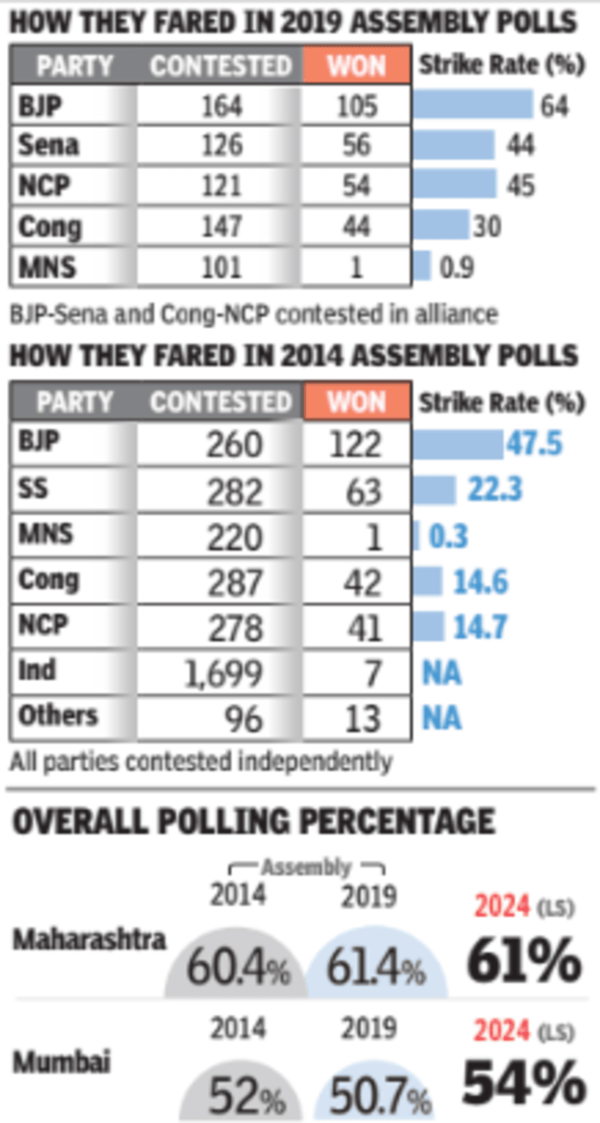
The Mahayuti govt has introduced several measures to appease farmers, while also attempting to persuade quota activist Manoj Jarange to adopt a less confrontational stance towards it. In addition, the alliance continues to assert that chief minister Eknath Shinde’s faction is the true Shiv Sena and deputy CM Ajit Pawar represents the authentic NCP. On the other hand, the opposition Maha Vikas Aghadi, energized by its performance in the 2024 Lok Sabha polls, is expected to attack the Mahayuti on two fronts: highlighting the govt’s failure to address the agrarian crisis, and portraying BJP, the dominant partner of the ruling coalition, as one that specializes in splitting parties and toppling governments.
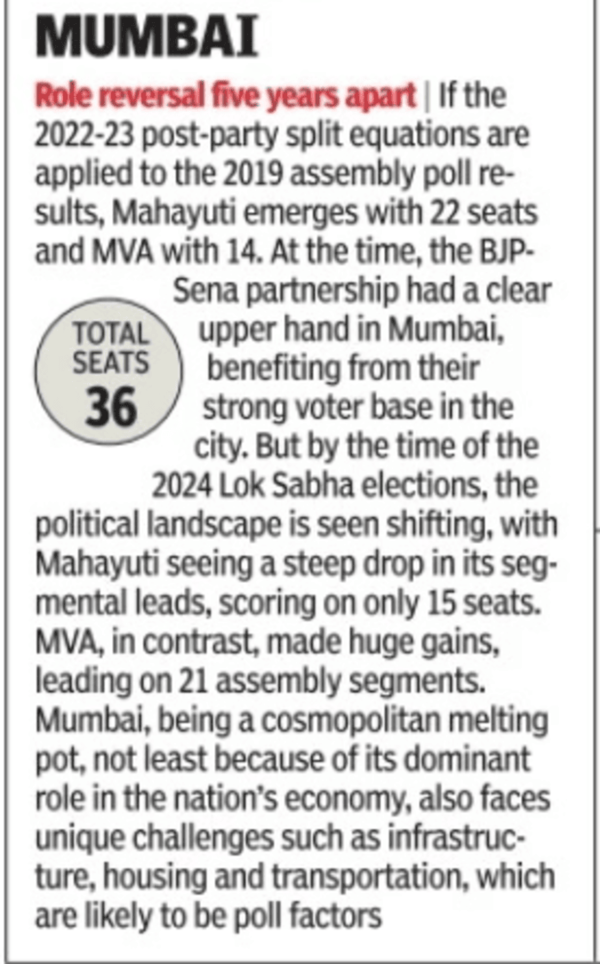
Western Maharashtra
The sugarbelt of the state remains politically significant as it sends 58 of the 288 assembly members. The region is a large sugarcane cultivation belt but has a growing industrial base as well. Rise in crime, particularly in and around Pune, has become a key concern.
Once a Congress stronghold, the region saw a shift in the 2019 elections, with Congress winning just 10 seats, the undivided NCP securing 21, and the BJP claiming 19, riding the Modi wave, which five years earlier had propelled it to power nationally in the 2014 parliamentary elections. The upcoming battle is expected to center on similar issues, though alliances have shifted.
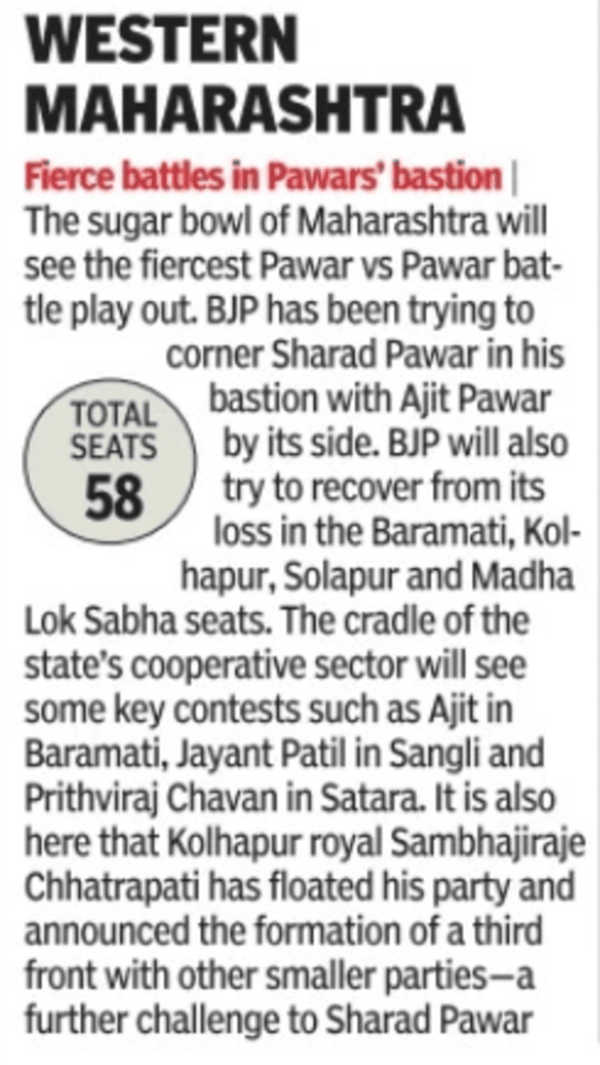
North Maharashtra
Here, Centre’s onion export ban has stirred considerable anger, something that BJP had failed to anticipate. Known as the state’s “kitchen bowl”, this region saw the BJP-Shiv Sena win only two of the eight Lok Sabha seats, a sharp decline from their 2014 clean sweep. In the 2019 assembly elections, the undivided BJP-Sena won 22 of the 47 seats in the five districts of the region, while Congress-NCP claimed 20. With the split in the Sena and NCP, a tight contest is expected.
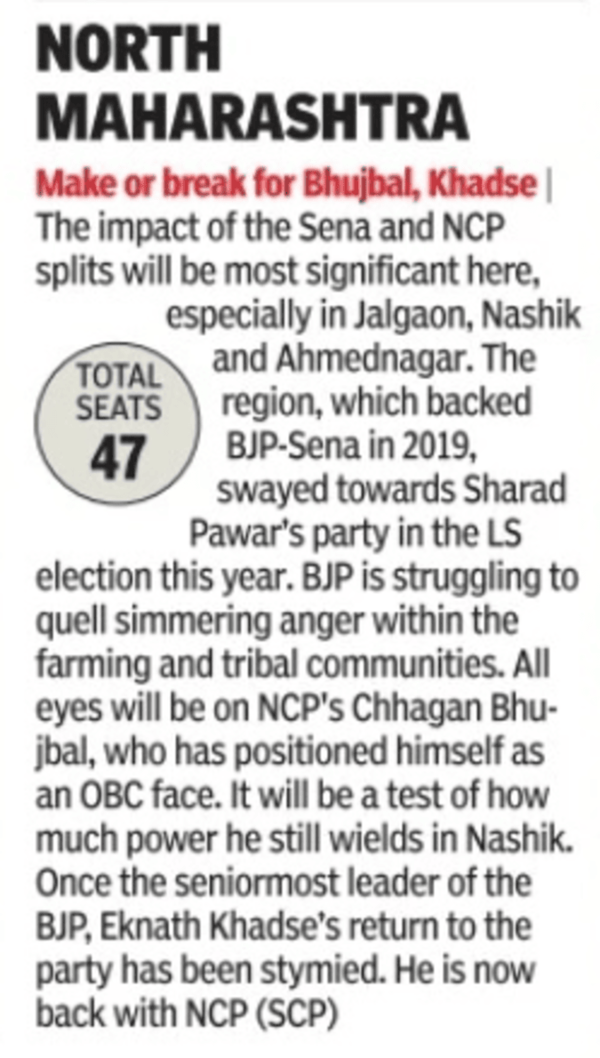
Marathwada
Long the subject of political discourse due to its droughtprone nature, it is the epicenter of the Maratha reservation agitation. The region, which has produced four chief ministers, could prove crucial to the fortunes of the alliance that eventually gains power. In the 2024 Lok Sabha elections, the BJP-Sena managed just one of the eight seats, down from six in 2019, when the saffron alliance won 29 of the 46 assembly seats across the region’s eight districts. Winning over the Maratha community here will be key to success—a near-impossible task for Mahayuti, as neutral political experts say.

Vidarbha
This region, which has the highest incidence of farmer suicides in Maharashtra, has a total of 62 assembly seats. The outcome will depend on how OBC, Dalit, and tribal voters, who make up 80% of the electorate, respond to various narratives. Farmers form the largest voter group. But they are grappling with debt, rising input costs, and a labour shortage, partly attributed to the Ladki Bahin freebie. In the 2019 polls, BJP’s seat count in Vidarbha had dropped to 29 from 44 in 2014.
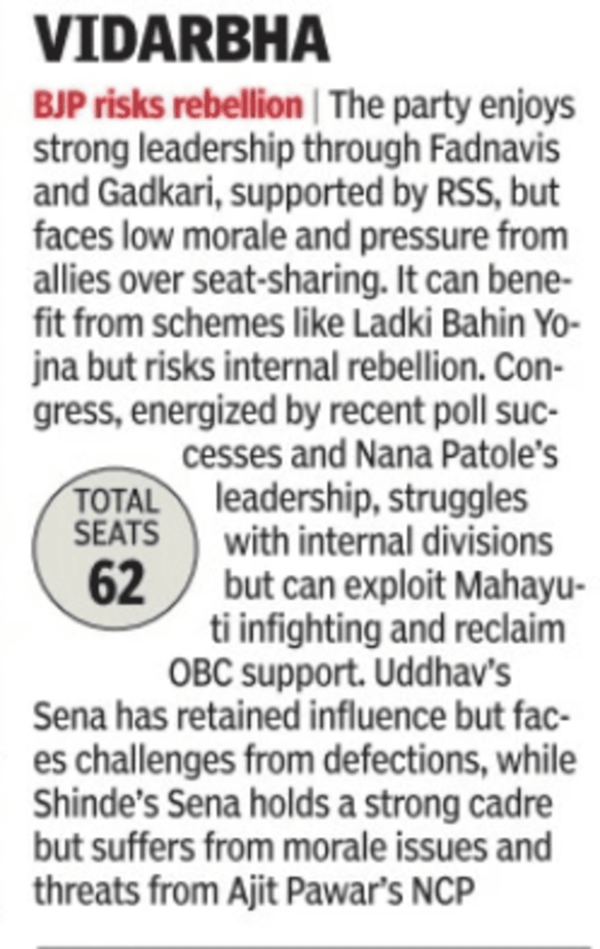
Konkan
The state’s coastal belt is known for its Alphonso mangoes, cashew plantations, rice fields and fish. It’s also a region which faces the brunt of climate change, with cyclones battering its shores of late. Electorally, the Konkan region spans one of the state’s densest clusters: Mumbai Metropolitan Region with satellite towns like Thane, Mira-Bhayandar and Palghar. In 2019 assembly elections, the undivided Sena won 15 seats—the region was always a Sena bastion—BJP 11, NCP 5, and Congress none. Smaller parties won the remaining eight seats. Following the split in the Sena, most of its MLAs sided with the Shinde faction. In the Lok Sabha polls, Sena (UBT) suffered major losses, with BJP’s Narayan Rane winning RatnagiriSindhudurg and NCP’s Sunil Tatkare taking Raigad.
